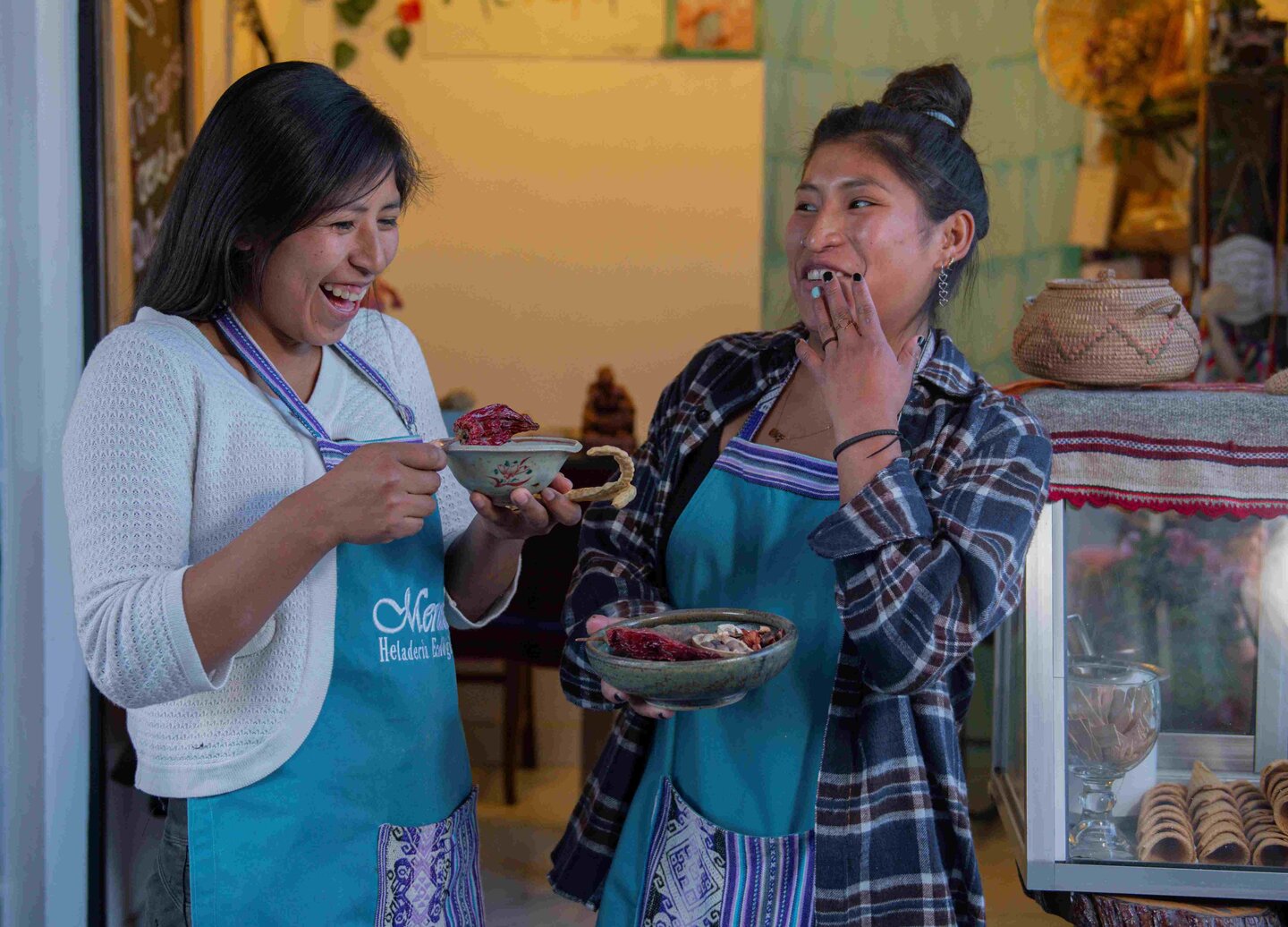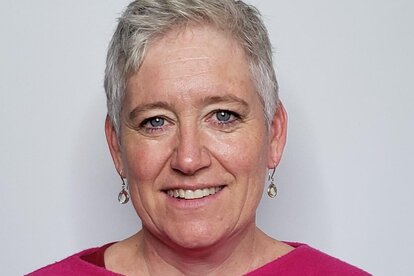Senobia Lázaro Puma was 14 years old when her parents left her alone with her younger siblings in Sucre, the capital of Bolivia. They wanted to return to the countryside because they couldn't find work in the city. But they also wanted their children to attend school, which wasn't possible in the countryside. Like thousands of other students in Bolivian cities, Senobia had to earn money to support herself and her siblings. She worked odd jobs and studied hard — and went the extra mile when, at the age of 15, she decided to take evening classes in catering. “It was a tough time, but I didn't want to give up. I fought,” she says.
As the youngest in the catering course, she was ridiculed; fortunately, a woman who could have been her grandmother stood by her and supported her by offering her a small job. And so, through long days and hard work, a young, determined and unyielding woman laid the foundations for her life. Soon she began making ice cream on a small scale with her sister Noémi.
Ray of hope
Her determination and fighting spirit impressed many people. And then one day Senobia heard about an organization that supports young entrepreneurs: Helvetas co-founded a foundation in Sucre that aims to awaken and promote entrepreneurial spirit in young people like Senobia. Through various courses, they can learn everything they need to know to successfully launch a business — from business planning and accounting to marketing and presentation skills.
Senobia seized the opportunity, and her plans were so well thought out that she soon received start-up capital from the foundation to take her ice cream business to the next level. Instead of renting freezer space, she bought her own freezer, and instead of stirring the ice cream by hand, she got an ice cream machine. Thanks to her professionalism, she was awarded a sales stand in a popular park in Sucre, and later on received the city's business award.
Women who free themselves from poverty don't just free themselves. They take their families with them — as well as other women. What Senobia started as a small, informal business with her sister is now the Meraki company. Meraki is Greek and stands for passion and dedication — a fitting choice of name. Meraki employs dozens of women in addition to the two sisters. And it exclusively sources natural ingredients from the Sucre area.
Cohesion
“I only work with women,” explains Senobia. In Bolivia's machismo society, women are usually financially dependent on their husbands — and often exposed to domestic violence. "Together, we work on their independence so that these women can leave their abusers if they want to. This is particularly important in violent relationships so that the children do not learn and adopt their fathers' behavior patterns."
The women work in production and sales, and many more supply the ingredients for the ice cream. Senobia buys mushrooms, beans, carob, dates and numerous other local wild fruits from them. These are bold ingredients, but they are popular.
She makes Oreo ice cream for the children and always adds a tiny scoop of a different flavor. “That way they get to know new flavors,” she laughs. Senobia selects the flavors with her sister, tests them out, and refines them.
“We all have our skills. Without all the women around me, I wouldn't be where I am today,” says Senobia. She pays a fair wage and insures her partners — she doesn't want to call them “employees” because that doesn't do the women justice. The opening hours of the seven sales outlets are adapted to the women's availability. And alongside the rural women who collect the raw materials, she experiments with ways of processing the wild fruits so that they, too, can earn more income.

Prospects
Meraki is registered as a company. In the past, the hurdles for young entrepreneurs were almost insurmountable. Helvetas, together with numerous associations and companies, has worked tirelessly to simplify the bureaucratic procedures. Meraki has also received organic certification, again thanks to the support of the foundation co-founded by Helvetas. This paperwork gives Senobia certainty around her business’s legal standing. "We all have a purpose in life. I know what I'm talking about, I know how difficult life can be. I know the struggles women have to face," says Senobia, who herself has a child from a difficult relationship.
That is precisely why she takes women with her on her path to success. And that is precisely why Helvetas intentionally promotes women in all its projects — so that success spreads!



